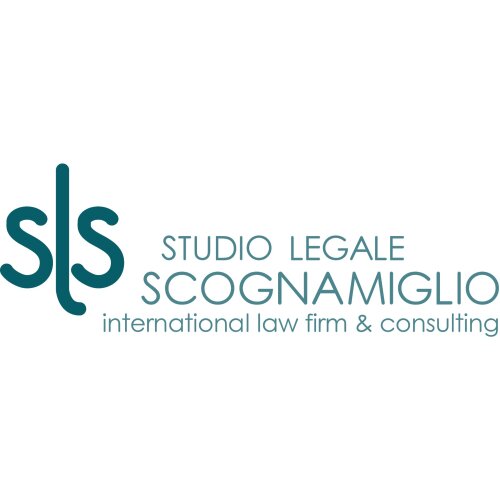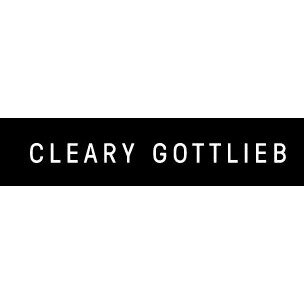Best Energy Regulatory Law Lawyers in Italy
Share your needs with us, get contacted by law firms.
Free. Takes 2 min.
Or refine your search by selecting a city:
List of the best lawyers in Italy
About Energy Regulatory Law in Italy
Energy Regulatory Law in Italy governs the production, distribution, and consumption of energy within the country. This complex legal field includes regulations concerning electricity, natural gas, renewable energy, and energy efficiency. Italian Energy Regulatory Law is closely aligned with European Union directives and aims to ensure a competitive energy market, protect consumers, promote sustainable development, and safeguard the environment. The primary regulatory authority is ARERA (Autorità di Regolazione per Energia, Reti e Ambiente), which issues rules and oversees legal compliance throughout the energy sector.
Why You May Need a Lawyer
There are many reasons why individuals and businesses may require legal assistance with Energy Regulatory Law in Italy. Common situations include:
- Obtaining licenses or permits for energy production or distribution
- Navigating complex regulatory requirements when starting energy projects
- Addressing disputes with energy suppliers or grid operators
- Complying with energy efficiency standards and renewable energy incentives
- Managing contractual relationships related to energy supply or infrastructure
- Dealing with regulatory investigations or enforcement actions
- Investing in energy projects or engaging in mergers and acquisitions in the energy sector
- Understanding and implementing European Union energy rules as they pertain to Italy
A specialized lawyer can provide indispensable guidance, reduce legal risks, and ensure proper compliance with all applicable laws.
Local Laws Overview
Energy Regulatory Law in Italy is shaped by national laws, regulations from ARERA, and European Union directives. Key aspects include:
- Authorization Procedures: All energy operators must obtain proper authorizations for generation, distribution, and sale of energy. This often involves multiple governmental bodies.
- Grid Access: Transparent and non-discriminatory access to the energy transmission and distribution grids is mandated by law.
- Tariff Regulation: ARERA sets methods for calculating tariffs for electricity and gas, balancing consumer protection with market viability.
- Renewable Energy Promotion: Italy offers various financial incentives and mandatory minimum quotas to encourage renewable energy production.
- Energy Efficiency Requirements: Laws require businesses and public entities to meet specific energy efficiency standards and implement energy-saving measures.
- Consumer Protection: Consumers have legal rights to transparent billing, contract clarity, and complaint mechanisms.
- Environmental Compliance: Energy projects must comply with environmental impact assessments and emission standards.
- Market Liberalization: The law promotes competition in energy markets while ensuring reliability and safety in supply.
Frequently Asked Questions
What is ARERA and what role does it play in Italy's energy sector?
ARERA is the regulatory authority for energy, networks, and environment in Italy. It sets rules for energy markets, monitors compliance, regulates tariffs, and protects consumer interests.
Do I need a license to produce renewable energy in Italy?
Yes, you must obtain specific licenses and permits depending on the scale and type of renewable energy installation, including environmental assessments and grid connection approval.
How are energy tariffs regulated?
Energy tariffs for electricity and natural gas are regulated by ARERA, which determines calculation methods based on cost, market conditions, and the need for fair consumer pricing.
Can businesses sell excess renewable energy back to the grid?
Yes, businesses with approved energy installations can sell surplus energy to the grid, subject to specific agreements and regulatory compliance.
What incentives exist for investing in renewable energy?
Italy provides several incentives such as feed-in tariffs, tax credits, and grants for both individuals and businesses investing in renewable energy projects.
Are there special rules for energy efficiency in commercial buildings?
Yes, there are mandatory regulations for energy efficiency in commercial and public buildings, including periodic audits and minimum performance standards.
How can consumers resolve disputes with energy providers?
Consumers can file complaints with the energy provider, and if unresolved, can escalate the matter to ARERA for arbitration or intervention.
What are the rules for grid access for new energy suppliers?
New suppliers have the right to non-discriminatory grid access, but must comply with technical and regulatory standards set by ARERA and relevant grid operators.
What regulations govern energy imports and exports?
Cross-border energy trade is regulated by both Italian law and EU regulations, requiring specific permits, compliance with safety standards, and adherence to market rules.
Do energy projects require environmental assessments?
Yes, many energy projects require an environmental impact assessment to ensure compliance with environmental protection laws before receiving authorization.
Additional Resources
If you need more information or assistance, the following resources can be helpful:
- ARERA (Autorità di Regolazione per Energia, Reti e Ambiente) - The primary energy regulatory authority in Italy
- GSE (Gestore dei Servizi Energetici) - Manages incentives and support schemes for renewable energy
- Ministry of Ecological Transition (Ministero della Transizione Ecologica) - Oversees national energy policy and environmental standards
- Chamber of Commerce (Camera di Commercio) - Provides formalities and regulatory support for businesses entering the energy sector
- European Commission Energy Directorate-General - Source of EU-level regulations impacting the Italian energy market
Next Steps
If you need legal advice regarding Energy Regulatory Law in Italy, consider these steps:
- Clearly identify your legal questions or issues related to energy law.
- Gather relevant documents, such as permits, contracts, or regulatory correspondence.
- Consult a lawyer specialized in energy or administrative law to discuss your case and receive tailored advice.
- Consider reaching out to ARERA or GSE for any administrative guidance before proceeding with legal action.
- Stay informed about updates in Italian and EU energy law, as regulations can change rapidly.
An informed legal approach can help you navigate regulatory complexity, achieve compliance, and safeguard your interests in the dynamic Italian energy sector.
Lawzana helps you find the best lawyers and law firms in Italy through a curated and pre-screened list of qualified legal professionals. Our platform offers rankings and detailed profiles of attorneys and law firms, allowing you to compare based on practice areas, including Energy Regulatory Law, experience, and client feedback.
Each profile includes a description of the firm's areas of practice, client reviews, team members and partners, year of establishment, spoken languages, office locations, contact information, social media presence, and any published articles or resources. Most firms on our platform speak English and are experienced in both local and international legal matters.
Get a quote from top-rated law firms in Italy — quickly, securely, and without unnecessary hassle.
Disclaimer:
The information provided on this page is for general informational purposes only and does not constitute legal advice. While we strive to ensure the accuracy and relevance of the content, legal information may change over time, and interpretations of the law can vary. You should always consult with a qualified legal professional for advice specific to your situation.
We disclaim all liability for actions taken or not taken based on the content of this page. If you believe any information is incorrect or outdated, please contact us, and we will review and update it where appropriate.
Browse energy regulatory law law firms by city in Italy
Refine your search by selecting a city.
















